
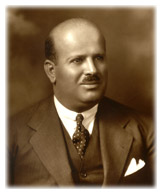
In 1902, Julián Slim Haddad, father of Carlos Slim Helú, arrived in Mexico from Lebanon, all alone and 14 years of age, speaking no Spanish. He was escaping from the yoke of the Ottoman Empire, which at the time conscripted young men into its army; mothers therefore sent their sons to exile before turning fifteen.
And thus Don Julián arrived in Mexico; he was a young man, energetic and full of enthusiasm and ideas, who after disembarking in Veracruz, moved to Tampico, Tamaulipas, where four of his older brothers had already settled since 1898 (José, Elías, Carlos and Pedro Slim) with the conviction that they would succeed together with the country that had received them.
Carlos Slim's mother, Doña Linda Helú, was born in Parral, Chihuahua. She was the daughter of José Helú and Wadiha Atta, Lebanese immigrants who arrived in Mexico at the end of the 19th century, and after traveling through several cities in the Mexican Republic, decided to settle in the capital city. José Helú brought the first Arabic printing press to Mexico and founded one of the first magazines for the Lebanese community in this country.
The Slim brothers later moved to Mexico City and in 1911, Julián Slim and his brother José, who was thirteen years older than him, founded the company La Estrella de Oriente (“the Star of the East”), so named in honor of their country of origin. The partnership was formed with 25,800 pesos, each of them contributing 50 percent. In May 1914, in the midst of the Mexican Revolution, Don Julián, then 26 years old, bought his brother’s fifty percent stake for 30,000 pesos.
La Estrella de Oriente was an important dry goods store located on Calle de Capuchinas (today Venustiano Carranza); that, over time and with Don Julián’s extraordinary work ethic and business talent, had merchandise worth more than US$100,000 by January 21, 1921, only ten years after the business was founded. By that time, Don Julián had also acquired eleven more properties in the area, which was one of the most commercial, active and significant in downtown Mexico City, and therefore in the country. The current value of the store would be more than US$7 million today, and the real estate would be worth around US$28 million.
By 1922, Don Julián’s net worth was already $1,012,258 pesos between real estate, businesses and various stocks.
In August 1926, Julián Slim and Linda Helú married in Mexico City. Their first daughter, Nour, was born four years later, and Alma two years after that, followed by Julián, José, Carlos and Linda.
With his intelligence and tenacity for work, Don Julián Slim Haddad would become a prominent businessman and the father of an exemplary family who was able to instill in his children both moral values and the dedication to and familiarity with work.
The reasons for Don Julián Slim Haddad’s commercial success were simple: a calling, talent and hard work. Don Julián’s thinking was ahead of his time, given his deep understanding of business; by the 1920s he was already talking about an efficient business as one that sold large volumes at smaller margins, and with payment facilities, factors that today prevail in the large discount stores.
In 1927, when Mexican migration policy ceased to be favorable for many foreigners and Lebanese, immigration was restricted, Don Julián Slim, who served as president of the Lebanese Chamber of Commerce for almost 20 years (from 1930 until it was disbanded at the end of the 1940s), successfully filed a lengthy and well-researched legal brief with the Department of State that described the activities and characteristics of his fellow countrymen and defended their rights. Thanks to this, there was a favorable resolution for these immigrants. A part of this document reads as follows: “Lebanese are characterized by their work, their economy, their simplicity, how easily and quickly they learn the language of the countries they go to and in which they live peacefully, especially in places like México that maintain a sacred commitment to personal independence and love of the homeland”.
During his leadership of the Chamber, he conducted a census of all Lebanese businessmen in Mexico and actively participated with them in the Nationalist Campaign of the 1930s, whose objective was to promote Mexican industry by buying and consuming made-in-Mexico products, with the aim of benefiting trade, employment and national development. The motto of the campaign was “consume what the country produces.” Although this campaign had the support of the President of the Republic (Pascual Ortiz Rubio) it did not cost the country’s federal treasury a penny because the various chambers of commerce contributed the resources to disseminate and promote it. The campaign always advocated the excellence of Mexican products and for an increase in the country’s exports. Don Julián’s participation was especially active, important and dynamic in this important movement and it proved his extraordinary capacity to assimilate to the culture of a country that he assumed and defended as his own. During that period he requested and finally obtained Mexican nationality.
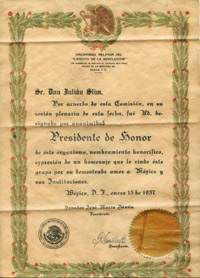
The Relator
Committee of Ejército de la Revolución acknowledges Don Julián Slim,
Mr. Carlos Slim's father. Don Julian was awarded Honorific President of
the Ejército de la Revolución in 1937 because of his commitment to
Mexico and its institutions.
He also received his first business lessons in early childhood, as Don Julián gave each of his children a savings book with their usual weekly allowance in order for them to learn to manage their income and expenses. They reviewed this book with him, analyzing their expenses, purchases and activities, and by following this rule Don Julián’s children managed their finances and developed their own wealth. From that time investment and savings were part of young Carlos’s life, becoming his first lesson in business, which he soon put into practice by opening his first checking account and buying shares of Banco Nacional de México when he was only 12 years old.
With his parents and five siblings, Carlos Slim Helú grew up in a close, loving family that taught by good example, but in 1953 Don Julián died suddenly, deeply affecting the Slim Helú family; it was a sad and unexpected emotional blow that left a noticeable mark in the home. Carlos was only 13 years old.
Carlos Slim Helú studied Civil Engineering at the National Autonomous University of Mexico (known by its Spanish acronym UNAM) School of Engineering, where he also taught Algebra and Linear Programming while studying for his degree, meaning that he was both a student and professor.
In 1965, when he was only 25 years old, he began to build the foundations of Grupo Carso. Inmobiliaria Carso was incorporated in January 1966, three months before marrying Soumaya Domit Gemayel, hence the name Carso, which is a combination of the first three letters of Carlos and the first two letters of Soumaya.
Since the 1980s he has been a noted businessman in various industrial, real estate and commercial fields. In 1982, which was a critical time in the history of Mexico with the debt crisis, nationalization of the banking system and the country’s finances nearly paralyzed, Carlos Slim and his Grupo Carso decided to invest heavily and actively. They made diverse investments and acquisitions during this period, one of which was Cigatam, which turned out to be the first and most important because of its cash flow, providing the Group with sufficient liquidity to capitalize on available opportunities and thereby increase itsacquisitions of big companies, including: Hulera el Centenario, Bimex, Hoteles Calinda (today, OSTAR Grupo Hotelero) and Reynolds Aluminio. Some time later the purchase of Seguros de México was closed, and Grupo Financiero Inbursa was formed by integrating Casa de Bolsa Inversora Bursátil, Seguros de México and Fianzas La Guardiana. By 1985, Grupo Carso acquired control of Artes Gráficas Unidas, Fábricas de Papel Loreto y Peña Pobre, and also a majority stake in Sanborns and its affiliate Dennys. In 1986 Minera FRISCO and Empresas Nacobre were acquired, as well as their affiliates, and control of the Euzkadi tire company, the market leader at the time, was also acquired, as was a majority stake in General Tire some years later.
In 1990, the group acquired TELMEX in partnership with SBC and France Telecom, and began a new era of entrepreneurial development in a globally strategic sector. Over the course of 22 years, TELMEX has developed a world-class technological platform that has optimized its processes and strengthened the corporate culture. Over this period of time TELMEX has invested the equivalent of US$27.692 billion in Mexico's telecommunications infrastructure and, combined with operations in Latin America, more than US$33 thousand million.
América Móvil is a good example of value creation for investors. Since 1996, it was a pioneer and global innovator of cellular prepayment systems. In 1990, Radiomóvil Dipsa (today TELCEL) had 35 thousand customers, to June 2012, had 313.1 million of clients in Latin America, 251.8 millions are cellular subscribers, and 30 million fixed lines, and 15.1 millions in broadband, and 11.6 millions of pay TV clients.
Carlos Slim has left most of the boards of his companies, and currently serves as: Chairman of the Board of Directors of Impulsora del Desarrollo y el Empleo en América Latina, S.A. de C.V. (IDEAL); Chairman of Fundación Telmex, A.C.; Chairman of Fundación Carlos Slim Helú, A.C.; Chairman of the Executive Committee of Consejo Consultivo de Restauración del Centro Histórico; and Chairman of Fundación del Centro Histórico, A.C.
Mr. Slim continues to be active in business although his main effort and work is focused on education, health and employment in Mexico and Latin America, through the foundations he chairs and companies in infrastructure arena; his three sons, Carlos, Marco Antonio and Patrick Slim Domit, have taken over the reins of his businesses.
Mr. Slim has lectured at public and private institutions as well as at international organizations such as the Economic Commission for Latin America (ECLA).
He was a member of the Board of Directors of Altria (previously Philip Morris Companies), and also a Board Member for SBC Communications, Inc., from which he retired in 2004 to devote more of his time to the IDEAL project, Impulsora para el Desarrollo y el Empleo en América Latina, with a particular emphasis on infrastructure, health and education.
He has also served as Vice Chairman of the Mexican Stock Exchange and Chairman of the Mexican Association of Brokerage Firms. He was the first Chairman of the Latin American Committee of the Board of Directors of the New York Stock Exchange.
Carlos Slim Helú and his wife Soumaya Domit de Slim (deceased) had six children: Carlos, Marco Antonio, Patrick, Soumaya, Vanessa and Johanna.
Mr. Slim has a passion for history, art and nature; he is also a great fan of baseball and has written several articles about the sport.
On December 16th, 2008, Engineer Carlos Slim Helu was nominated member of Research and Development Corporation Executive Board, a nonprofit research organization in the United States which offers assessment and solutions about commerce and politics, among other aspects, throughout the world.
At the time Eng. Slim was elected member of the executive board, the President and Executive Director of RAND Corporation, James A. Thomson expressed: “It is an honor to include in the executive board of RAND organization this distinguished business and philanthropist leader” and added: “Undoubtedly, Carlos Slim Helu will help the corporation to improve its 60 years of success by providing objective analysis and effective solutions related to the new challenges that the private and public sectors are facing around the world”.
ITU and UNESCO announce on May 10, in Genéve, Switzerland, the creation of top-level global Broadband Commission for Digital Development and it is co-chaired by Mr. Carlos Slim.
With high-impact social programs, focusing on the most vulnerable population, in 2011, Carlos Slim Foundation has directly benefited more than 29.7 million people.
Carlos Slim Helú has received significant recognition and has been honored with the following, among others:
- “Digital education and jobs creation are essential factors
that demand our efforts as both society and
country”, Mr. Carlos Slim said in a ceremony of his 50th
anniversary as an engineering graduate by the Universidad Nacional
Autónoma de México (UNAM), organized by engineers and architects
associations. May 28, 2013. Palacio de Minería, Ciudad de México. Continue...
- Mr. Carlos Slim Helú receives Medal of Honour from ISSF President Olegario Vazquez Raña.
Acapulco, México. March 20, 2013. Continue...
- The Business Council for International Understanding To
Honor Carlos Slim Helú With 2012 Dwight D. Eisenhower Global Leadership
Award. December 12, 2012. New York City. Continue...
- Mr. Carlos Slim received the Gibran National Committee Award
for his contribution to spreading the knowledge of the poet,
philosopher and painter Gibran Khalil Gibran.
Beirut, Lebanon, September 27, 2012. Continue...
- Carlos Slim was awarded for his Leadership in Philanthropy
by President Bill Clinton, at the Sixth Annual Clinton Global Citizen
Awards.
September 24, 2012. Nueva York, NY. Continue...
- Mr. Carlos Slim was named Honorific Grade Doctor by George
Washington University because of his philanthropic work and his
contribution to business and community development in Mexico and Latin
America.
May 20, 2012. Washington, DC, USA. Continue...
-
José Pagés Llergo Foundation did award Mr. Carlos Slim the
“Paz y Democracia” Prize in Investment and Development category.
April 18, 2012. Continue...
- Mr. Carlos Slim Helú was awarded Red Cross Badge of Honor
and Merit due to his long-standing humanitarian trajectory. The medal
was imposed to him by Mr. Daniel Goñi Díaz, president of Mexico's Red
Cross, and Taderatu Konoe, president of Red Cross International
Federation and Red Crescent Societies.
February 21, 2012. Mexico City. Continue...
- The Franco-Mexican Chamber of Commerce and Industry awarded Mr. Carlos Slim the Franco-Mexican Friendship Prize 2011, in recognition to his strong relationships to France through his entrepreneurial, industrial, social, commercial and cultural activities. November 10, 2011.
- Mr. Carlos Slim was awarded the prize Quién 50, aimed to
honoring the most influential persons in Mexico’s public opinion. That
prize is annually bestowed by Quién magazine to persons whose influence
and talent have produced helpful changes, growth, and improved
surroundings in their own fields and Mexico as well. November 8,
2011, Mexico City
- Claustro de Sor Juana University awarded Mr. Carlos Slim
the “Sor Juana Inés de la Cruz” Medal due to his effort to revive Mexico
City’s Historic Center. September 29, 2011, Mexico City. Continue...
- The World Boxing Council did award Mr. Carlos Slim the WBC Humanitarian Prize of the Year by his support to the boxing world.
November 2, 2010.
Cancún, Quintana Roo, Mexico. Continue...
- The President of Lebanon, Mr. Michel Sleiman, did honor Mr.
Carlos Slim by awarding him the Lebanese Gold Order to Merit, while the
Jezzine Municipal Government did name him Honorific Citizen. Beirut,
Lebanon, March 12, 2010. Continue...
- The George Washington University President's Medal, the most
distinguished academic award, in recognition of his philanthropic and
entrepreneurial management. June 30, 2009, Washington, D.C., U.S.A. Continue…
- Mr. Carlos Slim Helu received the ESADE award in recognition
of his philanthropic and entrepreneurial management, during the XIV
Annual Celebration ESADE Alumni, Barcelona. June 8, 2009. Barcelona,
Spain. Continue…
- Eng. Carlos Slim Helu conferred Man of the Year 2008 by the World Boxing Council (WBC). March 3, 2009. Mexico City. Continue…
- The National Order of the Cedar in Grade of Grand Officer was awarded by the Embassy of Lebanon in Mexico, on November, 2008. Continue…
- Recognition to Carlos Slim Helú to be the Mexican
industralist who more resources has destined in life to philanthropic
causes, granted by the Mexican Association of Professionals in Power of
attorney of Bottoms Chapter Mexico City, in November of 2007.
- Industralist of Year 2007, granted by the Mexican Foundation for the Health (Funsalud).
- National Award to the Excellence Jaime Torres Bodet 2007, granted by the University Center Sun Group.
- Life Achievement Award, by the World-wide Association of Mexican abroad (AMME), in June of 2006.
- Salon del Empresario Award, Mexico 2005. Continue...
- Fashion Group International Prize by his work in the rescue of the Historical Center of Mexico City in 2004.
- Real estate Developers Association Award 2004.
- Industralist of the Decade (Latin Trade 2004).
- Hadrian Award - N.York (2004), granted by World Monuments Fund.
- Alliance Award 2004 - granted by Free Trade Alliance.
- Industralist of the year (Latin Trade 2003).
- World Education and Development Fund (2004) - N. York.
- Decoration of the Commander Leopold II, by the Belgium Government. 2002.
- Golden Plate Award, granted by the American Academy of Achievement. 1994.
- Medal of Honor to Merit Business of the National Chamber of Commerce in Mexico City, 1985. Continue...
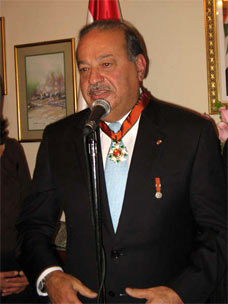
Carlos Slim during the ceremony where the
Embassy of Lebanon in Mexico
awarded him the National Order of the Cedar
in Grade of Grand Officer.
Embassy of Lebanon in Mexico
awarded him the National Order of the Cedar
in Grade of Grand Officer.
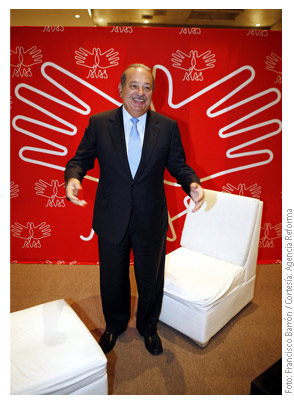
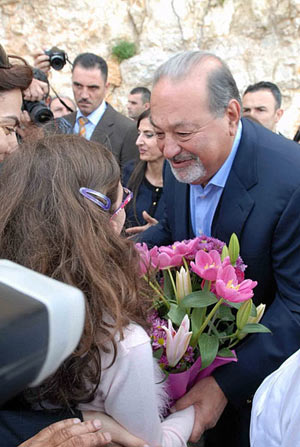
Carlos Slim in Lebanon
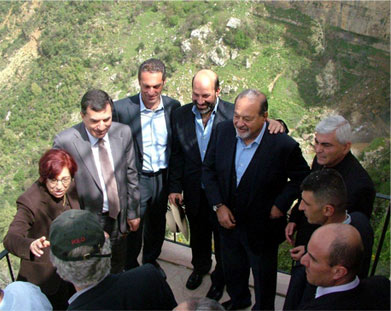
Carlos Slim in Lebanon

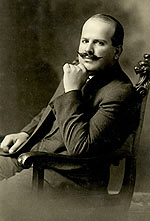
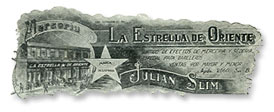
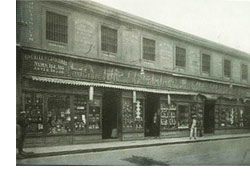
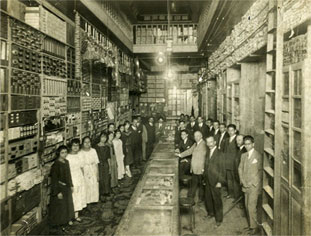
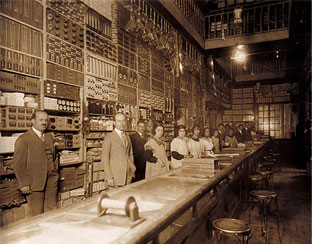
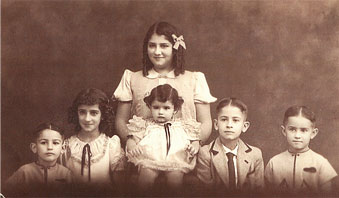
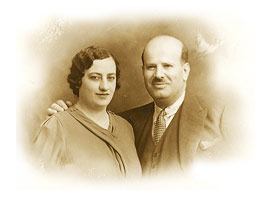

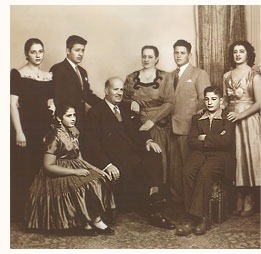
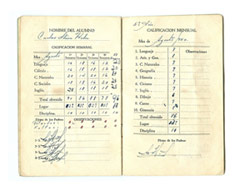

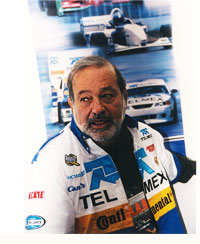
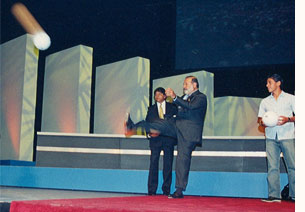
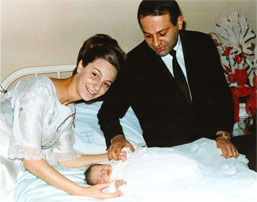
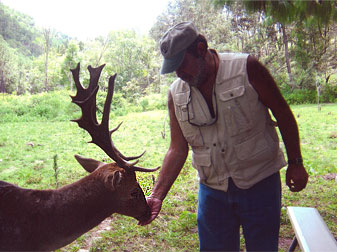
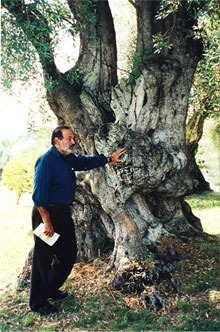
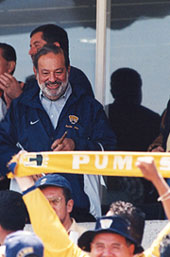
No comments:
Post a Comment